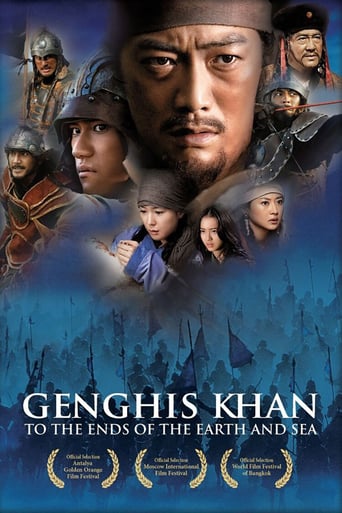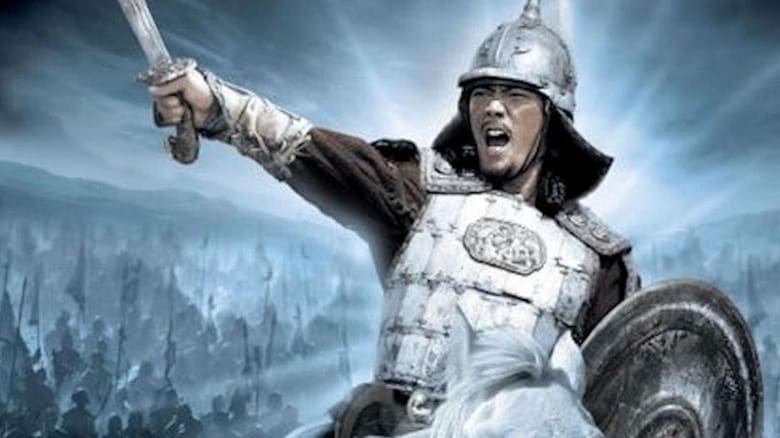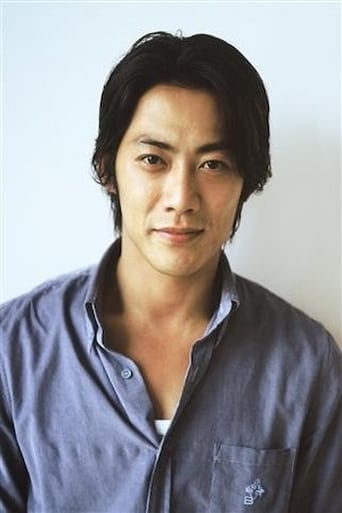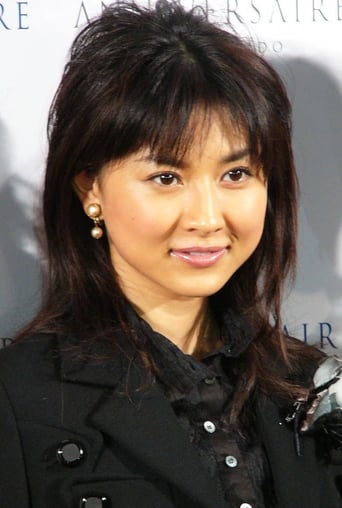

Genghis Khan: To The Ends Of The Earth And Sea (2007)
A look at Genghis Khan's life, from his birth to conquests in Asia.
Watch Trailer
Cast


Reviews
Touches You
Good , But It Is Overrated By Some
Awesome Movie
The story, direction, characters, and writing/dialogue is akin to taking a tranquilizer shot to the neck, but everything else was so well done.
Let me start by telling you some great reasons NOT to watch this movie. If you are looking for mindless violence, superbly choreographed action sequences, historical accuracy, big budget movie feel or fast paced narration, then avoid this movie. It offers you none of these.What this movie does have is a good story line, compelling narration that involves the audience, play of human emotions and great acting. It is memorable because of all these factors.Genghis Khan in real life was a ruthless man and unlikely to posses any of the stellar qualities ascribed to him in this movie. But that is the creative license we must allow film makers to have. Otherwise it would be drab world where all movies are documentaries.If you want to know about the real Genghis Khan, read a book.If you want to be immersed in good story telling, then watch this movie.
Genghis Khan was one of the great murdering conquerors in history, dining at the same table with Napoleon Bonaparte and Adolph Hitler. One assumes that their lust for land, power and the deaths of their enemies and victims, along with a practical indifference to the deaths of their own soldiers and people, sprang from how easily bored they could be. In Genghis Khans' case, if this movie is to believed (not a good idea with most movies' presentations of "history"), the melodrama of Genghis Khan's soap-opera life with Hoelun, his mother; Bolte, his wife; Kulan, his great-looking female bodyguard and occasional bed partner; and his sons and brothers would be enough to drive anyone away from the yurt and onto a horse. This isn't helped when Kulan, while she's wearing a Mongolian soldier's armor and a tufted helmet, looks a little like Leonardo DiCaprio. The movie tells the tale of the ascent of Temujin as unifier of the Mongols, conqueror of tribes and of vast lands, and leaves us, with Temujin now called Genghis Khan, as he charges toward the Great Wall of China, eager to take on the Jin dynasty. There is no tension to the story, no gradual building of the drama to match the story of greater and greater conquest. Narration is used to bridge the years and tell us of one more difficulty Temujin will face, which we then see acted for us. The movie is not boring, not with all those thundering horses, backward arrow shooting on horseback and a look at life in a yurt, but the sameness with which the story is told eventually becomes predictable. At least, even with the family melodrama and, for Western eyes, the overacting of the main characters, the movie doesn't ladle up the creamed corn that was John Wayne as a drawling Temujin and Susan Hayward as a frowning, red-haired Bolte. The movie settles into a rhythmic pattern early on: A battle, exciting and well managed, then melodrama, overwrought and tiresome. Then, another battle, another drama, another battle, over and over for 136 minutes. This Japanese movie was filmed in Mongolia and features primarily Japanese actors and what looks like most of the Mongolian army on leased horses. The battles get bigger and bigger as the movie progresses. It looked to me like there wasn't much Computer Generated Overkill used. With all the battles, I hope the producers had plenty of veterinarians on hand. A lot of horses took violent falls. There are some wonderful scenes of Mongolia's green, rolling, treeless hills and an interesting look at life in encampments. Just before Genghis Khan sets off to take on the Jin, he and Kulan exchange a bit of conquering philosophy. "I will go on as far as I can," says the man on horseback. "With every land I conquer, more borders between nations will vanish. People will travel freely and trade will flourish. Cultures and customs will be honored and all will live well." "But make war and there will be bloodshed," Kulan says to him. Replies Genghis Khan, "That is bloodshed that cannot be helped, to insure that no further blood need be spilled," Oh, brother. How many times has humanity heard that one?
I have viewed the TV series acted by the local Mongolian people, which really show us the ambition and character of a big man, Tiemuzhen.Actually, Tiemuzhen conquered the whole Aisa-Europe mainland. But why does the director stop in the middle. In the end of the movie, Tiemuzhen shoots out an arrow towards Chinese great wall. This is awful. Incomplete.Japanese spend a fortune on this movie and will circulate the movie to more than 60 countries, including 40+ European countries. About more than 100 million people will have chance to take a look at this so-called great movie.Those who know little about Mongolia will have a misunderstanding of Mongolia and this great historical figure.It's a bad movie. I don't recommend this title.
The summary line is not meant to be judgmental, just a statement of an impression."Blue wolf", referring to the legendary origin of the blood line of great Mongolian leaders, is a biographical account of Genghis Khan, filmed by Japan. It is quite in interesting that three movies set in Mongolia or about Mongolian that I watched within a month are shot in three different languages: this one in Japanese, "Tuya de hun shi" (http://www.imdb.com/title/tt0949564/usercomments-2) in Chinese and "Hyazgar" (http://www.imdb.com/title/tt0969276/usercomments-2) in Mongolian (as well as Korean).When I say "biographical account", it refers not only to the content, but also the presentation. The story is told in a very simple manner, as voice over from Temujin's (the name Genghis Khan is known by during the first 99% of the movie) mother (WAKAMURA Mayumi), starting from before his birth, and she appears right through the movie to the end when he becomes the Khan of the entire Mongolian empire. The makeup team has done a good job in transforming her from a beautiful young bride, through the various stages of the story, into a still graceful looking old lady.The story is told from an interesting angle: how Temujin's life is shaped by three women closest to him his mother, as mentioned, his wife (KIKUKAWA Rei) and Kulan, his Amazon-warrior-cum-bodyguard-cum-lover (rising young Korean idol Ara). Woven into the main theme of Temujin's story is the lamentation of the general fate of Mongolian women during that time of endless fights among nomadic tribes, turning them into loots for the victors. They were, according to the story, not invariably ravaged and enslaved. Some were well-treated and taken as wives, as Temujin's mother and, later on, his own wife. But that results in doubts of whether he was the true offspring from his father's line, and the same doubt later arose with his own son. It was through their heroic action, as the story goes, that prove that they carried the true blood of the "Blue wolf".While the three women all had their roles in Temujin's life, the two most affecting intimate story lines are those with his son whom he doubted, and with his boyhood buddy who later became his strongest rival for power. There are some beautiful shots of the splendor of Mongolia. The battle scenes demonstrate thoughtful planning and execution, from some 50 soldiers at Temujin's humble origin to the colossal army at the height of his power (aided by CGI). SORIMACHI Takashi, known to his TV fans best as a rebellious youth and an unorthodox young school teacher, carries well the role of Genghis Khan from early manhood to the height of his power.




